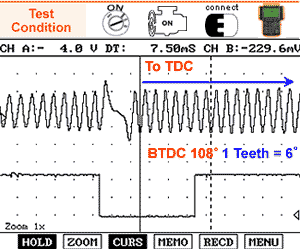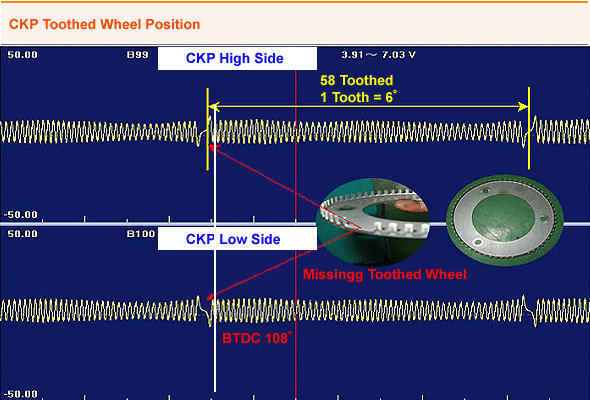IS THERE THE SIGNAL WAVEFORM PROPERLY DISPLAYED ?
YES
Make sure there is no the DTC in the dignostic trouble codes menu
NO
Recheck for the wiring/harness of CKP and CMP sensor
Go to "Component Inspection" procedure

WAVEFORM ANALYSIS
The given data is the normal waveform of the crankshaft position sensor (CKPS) and the Camshaft position sensor (CMPS). The CKP sinusoidal signal generates continuosly except 2 missing teeth. but the CMP squre waveform signal is output even when the CMP sensor meets the dowel pin of camshaft. If the waveform pattern becomes distorted or generated no signal while cranking or idling, replace the CKP or the CMP

